====================
This sermon was preached on Tuesday, November 6, 2012, at St. Paul’s Episcopal Church, Medina, Ohio, where Fr. Funston is rector.
(Lessons selected for the Mass were Isaiah 26:1-8, Romans 13:1-10, and Mark 12:13-17, from the Episcopal Book of Common Prayer’s lectionary for various occasions, “For the Nation”; the gradual, Psalm 146, was selected by the preacher.)
====================
 “This election is the most important, ever. If that candidate is elected, it will be the end of the world!” The first time I heard that was during the campaign of the first presidential election I paid attention to: the race between John F. Kennedy and Richard Nixon in 1960. I heard it as my family watched the televised debate; it was said by my older brother who was then a freshman studying history and political science at the University of Texas, so of course he knew everything. “That candidate,” by the way, was Richard Nixon. We heard it again in 1964; remember the television commercial with the little girl plucking petals from a daisy and the atomic explosion? “If Barry Goldwater is elected,” it suggested none too subtly, “it will be the end of the world.” We hear it every election, “This election is the most important election of our lifetimes.” And, to be honest, that is a correct statement. Those in the past are no longer important; they’re done and other with. Only this election can impact the future so, at this time, up to now, it is the most important. But truth be told . . . none of them, including this election, are really all that important in the grand scheme of things.
“This election is the most important, ever. If that candidate is elected, it will be the end of the world!” The first time I heard that was during the campaign of the first presidential election I paid attention to: the race between John F. Kennedy and Richard Nixon in 1960. I heard it as my family watched the televised debate; it was said by my older brother who was then a freshman studying history and political science at the University of Texas, so of course he knew everything. “That candidate,” by the way, was Richard Nixon. We heard it again in 1964; remember the television commercial with the little girl plucking petals from a daisy and the atomic explosion? “If Barry Goldwater is elected,” it suggested none too subtly, “it will be the end of the world.” We hear it every election, “This election is the most important election of our lifetimes.” And, to be honest, that is a correct statement. Those in the past are no longer important; they’re done and other with. Only this election can impact the future so, at this time, up to now, it is the most important. But truth be told . . . none of them, including this election, are really all that important in the grand scheme of things.
In the Daily Office Lectionary of the Episcopal Church, the cycle of bible readings to be read each morning, today’s New Testament reading was from the Book of Revelation which records the vision St. John of Patmos had of “the new Jerusalem,” of heaven. In the lesson, this is what John reports:
I saw what appeared to be a sea of glass mixed with fire, and those who had conquered the beast and its image and the number of its name standing beside the sea of glass with harps of God in their hands. And they sing the song of Moses, the servant of God, and the song of the Lamb:
“Great and amazing are your deeds,
Lord God the Almighty!
Just and true are your ways,
King of the nations!
Lord, who will not fear
and glorify your name?
For you alone are holy.
All nations will come
and worship before you,
for your judgments have been revealed.” (Revelation 15:2-4)
This song of praise was a wonderful reminder with which to begin Election Day: God is the king of the nations; he alone is holy. As we went to the polls today, we were casting our ballots for political leaders, not religious ones, and certainly not a savior. Today we chose between candidates for various offices, all of whom are simply human beings like ourselves, fallible human beings whom we hope will strive to overcome whatever their faults and frailties may be, and govern to the best of their abilities. Whether the candidates for whom you or I happened to vote are elected is not, at this point, of any real importance; what is of importance is that we respect and honor our system of governance, and support and pray for whichever candidates are ultimately placed in office.
The Psalm which we recited just a few minutes ago reminds us:
Put not your trust in rulers, nor in any child of earth, for there is no help in them.
When they breathe their last, they return to earth, and in that day their thoughts perish.
(Ps. 146:2-3, BCP version)
We are admonished not to rely, although we surely do, on our earthly leaders. We repose more trust, and certainly more expectation, than we ought in our elected leaders, forgetting that they are no different from, nor more perfect than we.
This evening we do not celebrate nor do we extol any political party, any platform, any candidate, any elected office holder. Instead, we give thanks for the freedoms we enjoy, for the country we love, and for the electoral process which allows us to maintain both through peaceful changes in government. We give thanks for the wisdom of our Founding Fathers, for the insight of the framers of the Constitution, for the bravery and sacrifice of those who have defended our rights and liberties, and for the commitment of our fellow citizens who have participated in our democracy and voted in this election. We give thanks for all these things to the one upon whom all this rests, to the one who is the foundation of our existence, to the one who is our ultimate concern, to the one in whose service we find perfect freedom.
When we gather to give thanks for and to pray for our national life, the lectionary of our church asks us to hear and consider the story of the Pharisees and Herodians asking Jesus about taxes: Is it lawful to pay them to Caesar? To which Jesus’ makes his famous reply, “Render to Caesar the things that are Caesar’s and to God the things that are God’s.” This gospel story, says theologian Daniel Deffenbaugh
. . . calls us to be neither enemies of the state nor its staunch allies. Rather, we should think of ourselves, in the words of Stanley Hauerwas, as “resident aliens. ” We do not refuse to give to the emperor the things that are the emperor’s, even when – much to our dismay – their utilization defies our most deeply held convictions. This is as true of the right as it is of the left, and in this we can take some solace. But the affections of our hearts and minds must always, and with greater fervor, be focused on the more urgent clause in Jesus’ directive: “give to God the things that are God’s.” (Allies or Enemies?
This, he says, leaves us in a “posture of perpetual discernment,” constantly trying to distinguish our steadfast devotion to God from our obligations to the nation.
The Cathechism of the Roman Catholic Church interprets this gospel tale as teaching that we should “give to God everything, but give Caesar his due.” Thus, we are called to take part in our national culture for the common good. “It is necessary that all participate, each according to his position and role, in promoting the common good. This obligation is inherent in the dignity of the human person.” (CCC 1913) To the best of our ability, we should all participate in the public arena for the good of the society. Jesus’ answer to the Pharisees and Herodians gives each person freedom to act in that public sphere, but with that freedom come awesome responsibilities, none more awesome than the privilege and obligation to participate in democratic elections, even if we do so in a “posture of perpetual discernment.”
We do our best in that state of constant decision-making. We study the issues and the candidates. We make our choices. We participate in the public arena. We vote. And then we trust . . . not in rulers, not in political parties, not in the candidates, not in any child of earth . . . We render our trust not to Caesar nor anything that is Caesar’s, but to God. It is not that our vote is unimportant, but it is not of ultimate concern.
In the Anglican Communion on November 6, we commemorate one of our greatest theologians, Archbishop William Temple, who served as Archbishop of Canterbury near the Second World War. He served in that post only two years, from his appointment in 1942 to his death in October, 1944. He served in the episcopate for 23 of his 63 years, first as Bishop of Manchester, then as Archbishop of York, and finally in the See of Canterbury. Throughout his life, he was a prolific author of philosophy and theology.
While serving in York, he addressed the 1938 Lambeth Conference, the decennial gathering of Anglican bishops, with these words which, I think, are a good reminder for us today:
While we deliberate, God reigns.
When we decide wisely, God reigns.
When we decide foolishly, God reigns.
When we serve God in humble loyalty, God reigns.
When we serve God self-assertively, God reigns.
When we rebel and seek to withhold our service, God reigns –
The Alpha and the Omega, which is and which was,
And which is to come, the Almighty.
John of Patmos in his apocalypse, the Psalmist in Psalm 146, Archbishop Temple in his address to the gathered bishops . . . they all remind us that no matter how we decide, no matter who is elected today, God reigns. As the graphic on the cover of our bulletin says, “No matter who is president, Jesus is king.”
Let us pray.
O God of light and love, inspire us, we pray, that we may rejoice with courage, confidence, and faith in the Word made flesh, Jesus our King, and that through our participation in our national culture and our democratic processes we may establish that society which has justice for its foundation and love for its law; through the same Jesus Christ, our Lord, who lives and reigns with you and the Holy Spirit, one God, now and for ever. Amen.
====================
A request to my readers: I’m trying to build the readership of this blog and I’d very much appreciate your help in doing so. If you find something here that is of value, please share it with others. If you are on Facebook, “like” the posts on your page so others can see them. If you are following me on Twitter, please “retweet” the notices of these meditations. If you have a blog of your own, please include mine in your links (a favor I will gladly reciprocate). Many thanks!
====================
Father Funston is the rector of St. Paul’s Episcopal Church, Medina, Ohio.
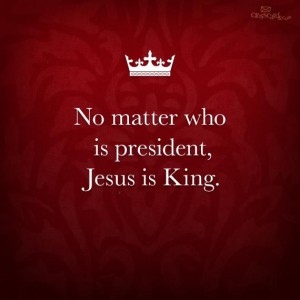
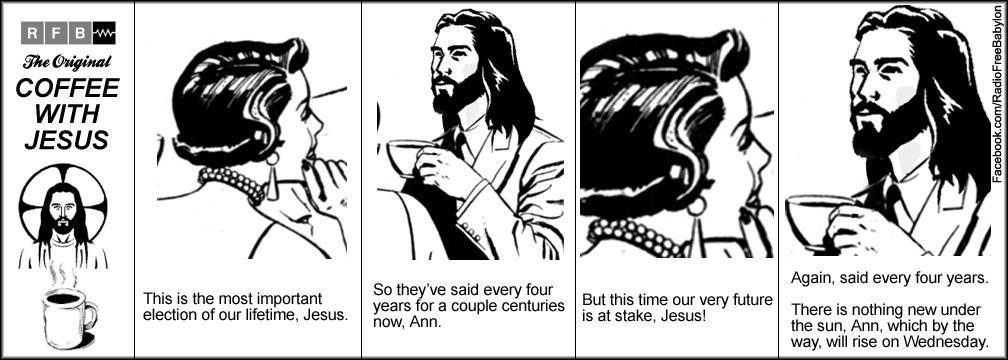
 A few years ago I used this text in an affirmative way at a mass in celebration of our country’s legal system and those who practice law at the bar or sit on the bench as judges, but as I reflect on this text today, I find it unacceptably elitist. Although in subsequent verses Ben Sira extolls the diligence and care taken by craftspeople and laborers, those who “rely on their hands, and all [who] are skilful in their own work,” (v. 31) he conludes that they “do [not] understand the decisions of the courts; they cannot expound discipline or judgement.” (v. 33) Workers cannot be wise in his estimation!
A few years ago I used this text in an affirmative way at a mass in celebration of our country’s legal system and those who practice law at the bar or sit on the bench as judges, but as I reflect on this text today, I find it unacceptably elitist. Although in subsequent verses Ben Sira extolls the diligence and care taken by craftspeople and laborers, those who “rely on their hands, and all [who] are skilful in their own work,” (v. 31) he conludes that they “do [not] understand the decisions of the courts; they cannot expound discipline or judgement.” (v. 33) Workers cannot be wise in his estimation! Today, following church tradition, we step away from the calendar of Ordinary Time and, instead, commemorate the Feast of All Saints. That festival is specifically held on November 1, but tradition allows us to celebrate the saints also on the Sunday after that date, so here we are.
Today, following church tradition, we step away from the calendar of Ordinary Time and, instead, commemorate the Feast of All Saints. That festival is specifically held on November 1, but tradition allows us to celebrate the saints also on the Sunday after that date, so here we are. It shouldn’t, but it always surprises me when I preside at a worship service and the offering of alms (cash money) is small. This is especially so at a small-attendance service when there are only a few people but even fewer dollars in the plate. It surprises me, I suppose, because of something I was taught by my grandfather. It shouldn’t surprise me, I suppose, because of the realities of which I am aware.
It shouldn’t, but it always surprises me when I preside at a worship service and the offering of alms (cash money) is small. This is especially so at a small-attendance service when there are only a few people but even fewer dollars in the plate. It surprises me, I suppose, because of something I was taught by my grandfather. It shouldn’t surprise me, I suppose, because of the realities of which I am aware.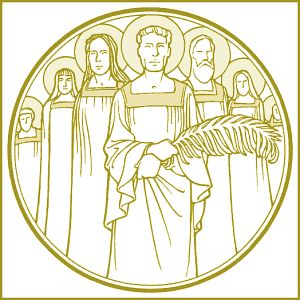 I have to admit that I’m not sure how to treat the so-called Second Book of Esdras. Although counted among the apocryphal books, it seems more to me to be what is technically called pseudopigrapha (“false writings”). It is not recognized by any western church; neither the Roman church nor the Protestants recognize it, although it is annexed as part of an appendix to the Vulgate. Only the Greek and Russian Orthodox accept it as Scripture. If I recall correctly, it is actually made up of three different writings all from the 2nd or 3rd Centuries of the Christian era; it’s not “Old Testament”or “Hebrew Scripture”, at all! So what does one do with it? Here it is in the lectionary for All Saints Day for obvious reasons, but what does one do with it?
I have to admit that I’m not sure how to treat the so-called Second Book of Esdras. Although counted among the apocryphal books, it seems more to me to be what is technically called pseudopigrapha (“false writings”). It is not recognized by any western church; neither the Roman church nor the Protestants recognize it, although it is annexed as part of an appendix to the Vulgate. Only the Greek and Russian Orthodox accept it as Scripture. If I recall correctly, it is actually made up of three different writings all from the 2nd or 3rd Centuries of the Christian era; it’s not “Old Testament”or “Hebrew Scripture”, at all! So what does one do with it? Here it is in the lectionary for All Saints Day for obvious reasons, but what does one do with it? I am a political junkie (to use a term probably copyrighted by the NPR radio show Talk of the Nation). I love the democratic political process by which we in the United States choose our leadership. I don’t, however, love what it sometimes makes me become – a hyperpartisan. Once I have considered the issues and the candidates, once I have decided for which candidate or party or side of an issue I am going to vote, I am decidedly opinionated and not shy about sharing that opinion.
I am a political junkie (to use a term probably copyrighted by the NPR radio show Talk of the Nation). I love the democratic political process by which we in the United States choose our leadership. I don’t, however, love what it sometimes makes me become – a hyperpartisan. Once I have considered the issues and the candidates, once I have decided for which candidate or party or side of an issue I am going to vote, I am decidedly opinionated and not shy about sharing that opinion. 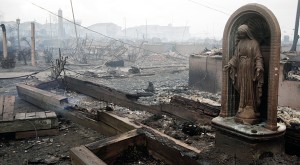
 Don’t you just love gossip? That juicy little tid-bit that you just can’t wait to pass on to a friend? It’s so wonderfully delicious, that little bit of o-so-salacious information about some mutual acquaintance? C’mon, admit it! You just love it. We all do. It’s human nature.
Don’t you just love gossip? That juicy little tid-bit that you just can’t wait to pass on to a friend? It’s so wonderfully delicious, that little bit of o-so-salacious information about some mutual acquaintance? C’mon, admit it! You just love it. We all do. It’s human nature.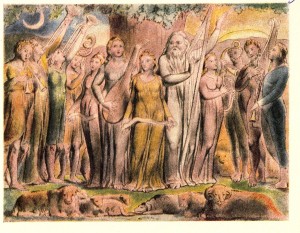 So here we are at the end of the Book of Job and the last of our sermons in this series entitled The Patients of Job. Let’s review the lessons we have learned, the spiritual remedies we have found in the medicine chest of this book.
So here we are at the end of the Book of Job and the last of our sermons in this series entitled The Patients of Job. Let’s review the lessons we have learned, the spiritual remedies we have found in the medicine chest of this book. 

